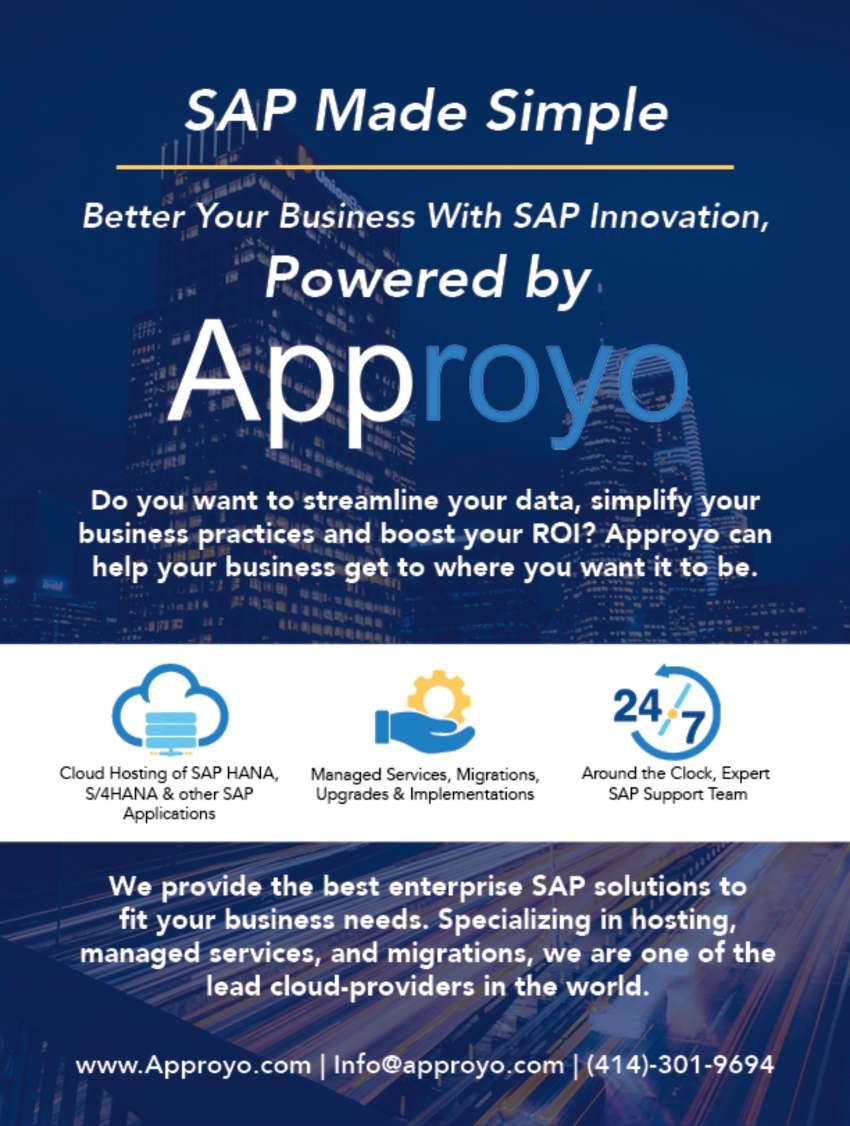
3 minute read
How HR Leaders are Enabling Dynamic Advancements in the Modern Business Arena?
In today's rapidly evolving business landscape, Human Resources (HR) leaders have emerged as key drivers of organizational success. Gone are the days when HR departments solely focused on administrative tasks. In the modern business arena, HR leaders are at the forefront of enabling dynamic advancements that propel companies forward.
From fostering a culture of innovation to attracting and retaining top talent, HR leaders play a pivotal role in shaping the future of organizations. In this article, we explore how HR leaders are embracing their evolving roles and leveraging their expertise to drive transformative change.
Advertisement
Strategic Workforce Planning:
In the dynamic business arena, HR leaders are actively involved in strategic workforce planning. They collaborate with senior management to align human capital strategies with overall business objectives. By understanding the company's goals and anticipating future talent needs, HR leaders ensure that the right talent is in place to support growth and innovation. They leverage data-driven insights to identify skill gaps, implement succession plans, and create agile talent acquisition strategies.
Nurturing a Culture of Innovation:
HR leaders recognize that fostering a culture of innovation is crucial for organizations to thrive in today's competitive landscape. They champion creativity and collaboration by implementing programs that encourage employees to generate and share ideas. HR leaders facilitate cross-functional teams, promote a growth mindset, and establish an environment where experimentation is encouraged. By embracing innovation, HR leaders enable companies to adapt, stay ahead of market trends, and drive business success.
Talent Acquisition and Retention:
Attracting and retaining top talent is a critical priority for HR leaders in the modern business arena. They understand that a diverse and skilled workforce is essential for innovation and sustainable growth. HR leaders employ creative recruitment strategies, leveraging social media, networking platforms, and innovative hiring practices to reach and engage top candidates. Moreover, they focus on enhancing the employee experience, implementing effective onboarding programs, and providing opportunities for professional development to retain high-performing individuals.
Agile Performance Management:
Traditional performance management systems are being replaced by agile approaches, and HR leaders are leading the way in this transformation. They recognize the importance of continuous feedback, ongoing coaching, and individual development plans. HR leaders advocate for performance metrics that align with the company's strategic objectives and provide real-time insights into employee performance.

By fostering a culture of continuous improvement, HR leaders empower employees to reach their full potential and drive organizational success.
Employee Well-being and Engagement:
HR leaders understand that employee well-being and engagement are key drivers of productivity and organizational performance. They champion initiatives that promote work-life balance, mental health support, and employee recognition programs. HR leaders ensure that employees have a voice through regular communication channels and engagement surveys. By prioritizing employee well-being and fostering a sense of belonging, HR leaders create a positive work environment that fuels employee motivation and commitment.
Embracing Technology and Digital Transformation:
HR leaders are embracing technological advancements and leveraging digital tools to enhance HR processes and drive efficiency. They are implementing modern HR systems, such as cloud-based platforms and integrated talent management software, to streamline recruitment, onboarding, performance management, and employee engagement initiatives. HR leaders also harness the power of data analytics to gain insights into workforce trends, optimize decision-making, and drive evidence-based HR strategies.
Leadership Development and Succession Planning : HR leaders recognize the importance of nurturing future leaders within the organization. They develop comprehensive leadership development programs to identify high-potential employees, provide them with targeted training and mentorship, and prepare them for leadership roles. HR leaders also work closely with executives to implement robust succession planning strategies, ensuring a smooth transition of leadership and the continuity of organizational goals.
Diversity, Equity, and Inclusion (DEI):
In the modern business arena, HR leaders play a critical role in advancing diversity, equity, and inclusion within organizations. They implement strategies to foster an inclusive work environment where individuals from diverse backgrounds feel valued and respected. HR leaders collaborate with stakeholders to develop and enforce policies that promote diversity in recruitment, eliminate bias in performance evaluations, and provide equal growth opportunities. By championing DEI initiatives, HR leaders contribute to building diverse teams that drive innovation and better reflect the customer base.
Change Management and Organizational Agility :
As businesses face constant change and disruption, HR leaders are instrumental in managing organizational transformations. They guide employees through change initiatives, facilitate communication, and address potential resistance. HR leaders play a crucial role in cultivating organizational agility by fostering a learning culture, encouraging adaptability, and equipping employees with the skills needed to navigate evolving business landscapes.
Collaboration and Stakeholder Engagement:
HR leaders recognize the significance of collaboration and stakeholder engagement in driving organizational success. They build strong partnerships with key stakeholders, such as senior executives, department heads, and employees, to align HR strategies with business objectives. HR leaders actively engage with employees, seeking their input and involving them in decision-making processes. By fostering collaboration and open communication, HR leaders enhance teamwork, promote transparency, and create a culture of trust.
In the modern business arena, HR leaders have transformed their roles from mere administrative functions to strategic partners driving dynamic advancements within organizations.
By focusing on strategic workforce planning, fostering a culture of innovation, attracting and retaining top talent, implementing agile performance management, and prioritizing employee well-being and engagement, HR leaders are propelling businesses forward.
As organizations navigate the complexities of the future, HR leaders will continue to be instrumental in shaping the workforce and enabling companies to thrive in the ever-changing business landscape.






